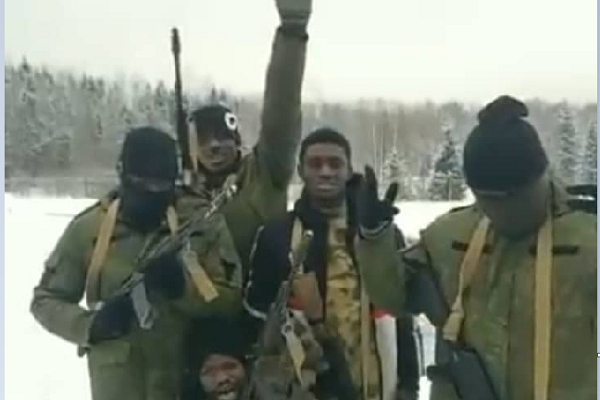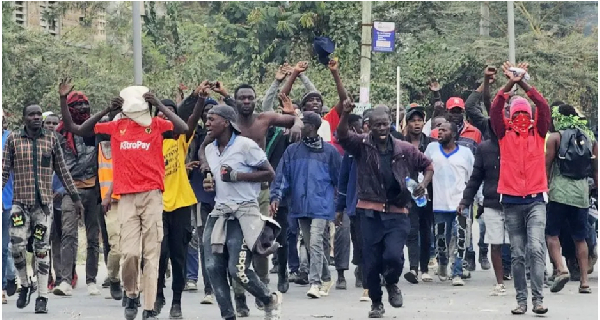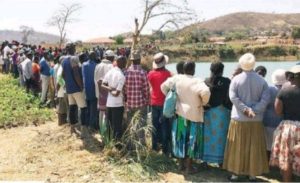How jobless African youth troop to Russia-Ukraine war front for US$2k per month

New details continue to emerge concerning reports that Ghanaians are being lured to Russia with the promise of civilian employment only to be sent to the war front in Ukraine and left to die.
One such recruit is Daniel Minta, who, according to trusted and reliable sources within officialdom, fled from his Russian army unit after basic training and has taken shelter at the Ghanaian embassy in Moscow, where he has remained since January 2024.
Embassy officials are now working to find a solution to Minta’s plight.
While it is believed that Minta remains under contract with the Russian Ministry of Defense, questions exist around the circumstances under which Minta and other Ghanaian and African youth lured to Russia were recruited for military service instead of the civilian employment they were promised.
In March this year, social media was awash with videos of Twi-speaking armed black soldiers in Russian military fatigue, proudly proclaiming to the whole world that they were Ghanaians fighting at the war front for Russia.
Ghana is not the only country that Russia has set its sights on to exploit desperate youth to bolster its forces.
International reports indicate similar underground recruitment is taking place in Somalia, Rwanda, Burundi, the Democratic Republic of the Congo, and Uganda as well, with the promise of a monthly salary, health insurance, and a Russian passport.
In Cuba, Russia has been accused of using similar tactics.
In May, a BBC investigation revealed that Russia’s Ministry of Defense has coerced hundreds of Cuban citizens into military service and promised the fighters future Russian citizenship.
Other Cubans claimed that they were offered construction jobs in Russia only to be sent to Ukraine’s eastern front instead.
In September 2023, Cuba also uncovered a human trafficking ring aimed at recruiting fighters for Russia.
These dishonest recruitment practices shed light on Russia’s questionable activities in Ghana and Africa.
Russia may be taking advantage of poor economic conditions to exploit Ghanaians who are looking for honest work.
Russia appears to have depleted its own human resources, which have included criminals from prisons, and is now turning to Africa’s youth as its next source of expendable lives to fuel its war in Ukraine.
On May 28, 2024, the Kyiv Independent reported that Ukraine’s military intelligence (HUR) said it picked signals suggesting Russia has intensified recruiting mercenaries in Central Africa.
It said the recruitment was recorded in Rwanda, Burundi, the Congo, and Uganda.
The report said a specially formed unit of the Russian Ministry of Defense carries out the process.
Fighters are lured to war by a cash payment of $2,000 for signing a contract.
The Russians, according to the report, promise a monthly pay of $2,200 and medical insurance.
They also offer a Russian passport for those who agree and their family members.
The intelligence also recalled how mercenaries from Nepal, recruited by Russia, deserted the army en masse due to numerous losses and treatments.
The Ukrainian news site said, “Russia is trying to attract foreign volunteers for the war,” while referencing the National Resistance Center’s previous report that Russia has “already recruited tens of thousands of Asian and African citizens.”
Also, The Defense Post reported two days ago that the existence of African mercenaries in the Russian military has been noted since 2023 when the “Russian Africa Corps” was created to replace the Wagner Group following its leader’s death.
Consisting of over 2,000 soldiers and officers, the unit reportedly operates alongside Moscow’s regular army and Storm-Z units, the Defense Post noted.
It said many of these mercenaries served in the Wagner Group and already had experience in Syria, Libya, Burkina Faso, and Niger.
Last week, the UK Ministry of Defence said the Africa Corps was spotted fighting in Ukraine’s Kharkiv region.
This could mean that Russia is “reinforcing its war on Ukraine with resources previously assigned to Africa,” the Defence Post quoted.
According to military.africa, social media has surfaced images of captured or deceased African mercenaries, sparking debates on the extent of African participation in the war. It said that despite the official neutral stance of African nations, these mercenaries are acting independently, without any African country officially deploying troops to support either side.
The motivations for these African soldiers of fortune vary, militayr.africa noted, with some seeking financial gain or citizenship, while others may have been coerced into service.
It added that the reasons for African involvement are varied.
For instance, while some, like Gomesh Richard Ferreira, a Ukrainian soldier with Angolan roots, fight for the country they call home, others, like Jean Claude Sangwa, a student in the breakaway Luhansk region, are caught in the middle and forced to take sides. Still, others, like Kimanzi Nashon from Kenya, are motivated by the hope of financial gain.
Russia, via its news outlet Sputnik, confirmed last November, according to military.africa, that a young Nigerian “came to fight against Ukraine and took the Russian name of Vanka,” but said it is currently uncertain if “Vanka” is still alive.
About two months ago, data released by the Russian Defense Ministry said Ukraine announced that five Zimbabwean mercenaries were fighting on their side (Ukraine), with one said to have since been killed on the battlefield.
However, military.africa said security sources said the figure could be more, reaching even 10, with three of them said to be former soldiers back home in Zimbabwe.
Military.africa said a total of 249 mercenaries from 14 countries in Africa have arrived in Ukraine since the war began two years ago, with 103 having been killed.
It said Nigeria tops the list with 97, followed by Algeria with 60 and South Africa with 35. Zimbabwe and South Africa are the only countries in southern Africa with mercenaries operating in Ukraine.
Military.africa noted that official figures suggest that over 200 Africans have joined the Ukrainian forces, while estimates indicate more than a thousand have enlisted with Russia.
In 2022, Ukrainian President Volodymyr Zelenskyy appealed to pro-democracy nations for support, with Foreign Minister Dmytro Kuleba noting that around 20,000 volunteers worldwide had expressed interest in joining the fight.
Volunteers from many African countries responded to the call.
Military.africa recalled that in Nigeria, for instance, many gathered at the Ukrainian embassy in Abuja, eager to enlist, although officials clarified that Africans were not being paid to fight and would need to cover their travel expenses to Europe.
Also, Senegal and Algeria responded by warning their citizens against participating and declaring such recruitment efforts illegal. South Africa’s stringent anti-mercenary laws further complicated the situation.
While some enlist willingly on both sides, others are either lured into it or coerced.
At the Media Center Ukraine, a briefing was held with the participation of captured mercenaries who shared their stories of how they ended up on the front lines.
“They were thrown in like cannon fodder because they weren’t trained. Some of them were deceived, meaning they were promised one thing, but in reality, it turned out to be completely different,” a representative of the Coordinating Headquarters for the Treatment of Prisoners of War, Petro Yatsenko, said.
Source: classfmonline.com





